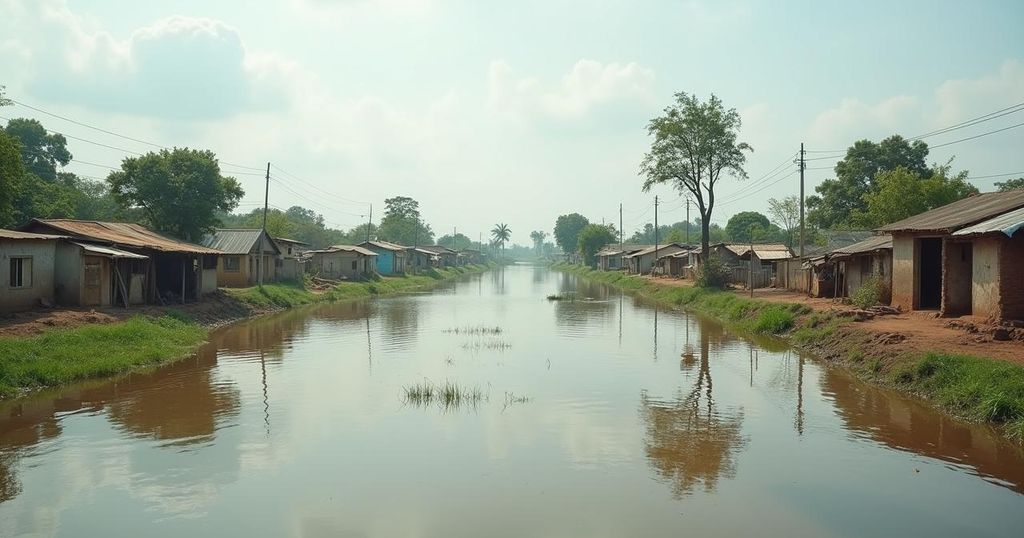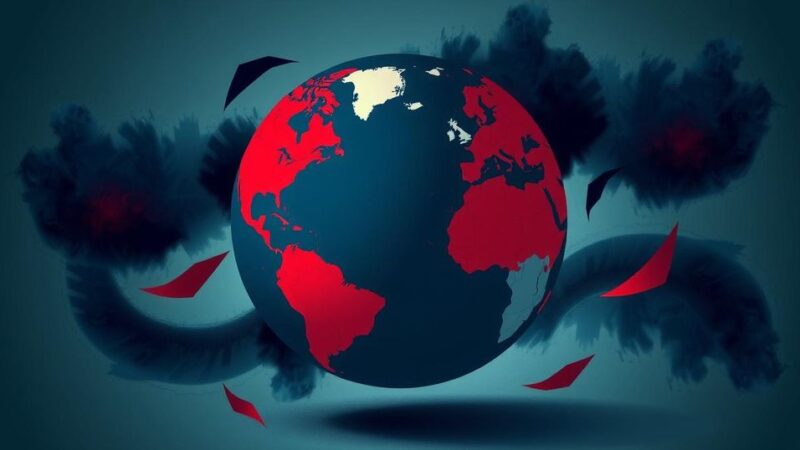The United Nations reported that floods in South Sudan have affected approximately 893,000 people, displacing over 241,000 as the country endures its worst flooding in decades. The situation highlights ongoing vulnerabilities due to climate change and political instability, further complicated by economic issues and the impact of the turmoil in Sudan.
The humanitarian situation in South Sudan has significantly deteriorated due to extensive flooding, as reported by the United Nations Office for the Coordination of Humanitarian Affairs (OCHA). Approximately 893,000 individuals have been impacted by these floods, with over 241,000 having been displaced. The floods, deemed the worst in several decades for the nation, have aggravated existing vulnerabilities stemming from climate change. OCHA has indicated that substantial rainfall has disrupted access to critical supply routes, rendering 15 major paths unusable. Flooding has been recorded in 42 out of 78 counties and the Abyei Administrative Area, an area under dispute between South Sudan and Sudan. The regions of Unity and Warrap in northern South Sudan are particularly hard-hit, accounting for over 40 percent of those affected. The displaced population is predominantly seeking refuge on higher ground, as conditions render their homes uninhabitable. Since its independence from Sudan in 2011, South Sudan has grappled with ongoing insecurity, economic struggles, and recurrent climate-related disasters such as droughts and flooding. The World Bank has underscored that these recent floods have exacerbated an already dire humanitarian context characterized by severe food insecurity, economic decline, persistent conflict, and health crises, alongside the influx of refugees due to the conflict in Sudan. It is estimated that by 2024, around nine million individuals, including refugees, will confront critical humanitarian needs. Additionally, South Sudan is facing political stagnation as the government has postponed elections, initially scheduled for December, by two more years, keeping the transitional period extended. Key aspects of the peace agreement established in 2018 remain unaddressed, including the formulation of a constitution and the unification of rival military forces. This prolonged delay has led to mounting frustrations among both the international community and the South Sudanese populace, with United Nations mission chief Nicholas Haysom noting a shared sentiment of exhaustion among the citizens. Despite its extensive oil wealth, the country’s economy has suffered greatly after a crucial export pipeline was damaged amid the ongoing conflict in Sudan, further complicating the humanitarian crisis.
South Sudan, the world’s newest nation, has a tumultuous history marked by continuous challenges since it gained independence from Sudan in 2011. The country has struggled with internal conflicts, economic hardship, and natural disasters, including droughts and flooding. This vulnerability is accentuated by its geography and climatic changes, making it particularly susceptible to flooding. The recent floods have left significant portions of the population in critical need, exacerbating food insecurity and overall humanitarian conditions. The ongoing conflict in Sudan has contributed to an influx of refugees into South Sudan, compounding the difficulties faced by the government and humanitarian agencies in addressing such emergencies.
In conclusion, South Sudan is currently experiencing a severe humanitarian crisis exacerbated by recent flooding that has displaced hundreds of thousands and affected nearly a million people. The situation is further complicated by ongoing political stagnation, economic setbacks, and the repercussions of conflict in neighboring Sudan. These factors together create a daunting challenge for humanitarian aid efforts, underscoring the necessity for immediate international intervention and support.
Original Source: www.barrons.com





